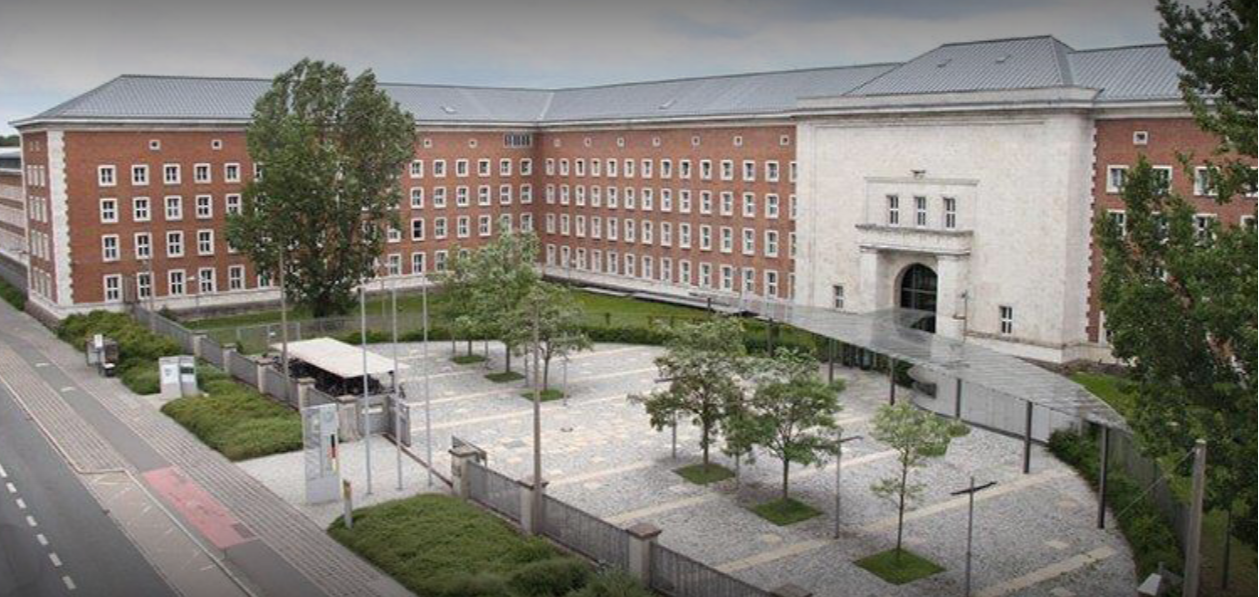Scandal shakes German refugee authority: Cash for asylum
More than 25 000 asylum cases will have to be re-processed after Germany's Federal Office for Refugees and Migration (BAMF) became mired in a corruption scandal at its regional office in the northern city of Bremen.
Published: May 23, 2018, 7:50 am
Interior Minister Horst Seehofer announced an audit after a former official at BAMF’s Bremen branch allegedly accepted cash bribes in exchange for granting asylum. Five more individuals, including three lawyers, an interpreter and an intermediary, are also being investigated.
The three lawyers allegedly received cash payments from “refugees” across Germany and submitted their asylum applications to the Bremen office.
At least 1200 refugees who did not meet the necessary criteria, were given refuge in Germany in exchange for cash.
The corrupt interpreter “translated” asylum interviews so that the answers matched the requirements for a successful asylum application. He allegedly received €500 per asylum seeker.
One Mohamad A, through the corrupt interpreter, claimed to be a Syrian refugee, whose sister was shot dead by forces loyal to Syrian President Bashar al-Assad. Two years later it emerged that Mohamad A had been lying not only about his nationality but also his victimhood. His name is actually Milad H and he is from Romania. He has never been to Syria.
Many migrants who were granted asylum are considered to be potential security risks, according to the news magazine Der Spiegel. They include intelligence operatives, human traffickers and hard-core criminals and jihadists.
The BAMF [Bundesamt für Migration und Flüchtlinge] relies on Muslim translators who deliberately sabotage Christian applicants by mistranslations during their interviews, according to Thomas Schirrmacher, president of the International Society for Human Rights.
Schirrmacher cited the example of a convert who, when talking about Martin Luther and the Gospel of Matthew, the Muslim interpreter translated it to “Lothar Matthäus”, a well-known German footballer.
Some 5 800 freelance interpreters — mostly migrants who are not proficient in German — are working for BAMF, according to Westdeutsche Allgemeine Zeitung. They were also hired without being vetted.
In May 2018, the public prosecutor of Nuremberg-Fürth opened a preliminary investigation for suspected aiding and abetting the unauthorized stay of migrants against BAMF director Jutta Cordt and three other senior BAMF employees.
Cordt has meanwhile announced that a team of 70 in-house auditors will reevaluate 18 000 asylum decisions issued since 2000 by its Bremen branch. In addition, BAMF will reexamine another 8 500 decisions made in 2017 by ten other regional offices, Die Welt reported.
The branches in question submitted a much higher number of asylum applications approved or denied, compared to other offices.
Leaks of internal BAMF emails published by German daily, Süddeutsche Zeitung showed that Cordt and other senior BAMF officials knew about “suspicious cases” at the Bremen office as early as February 2017, but refused to act and waited until after the German elections held in September 2017. One month after the federal elections, in October 2017, BAMF quietly launched an internal audit.
Immigration policy was a key issue during the election, launching the anti-immigration party Alternative for Germany (AfD) to become the third-largest party in the Bundestag, the German federal parliament. The corruption scandal would have boosted their votes if it had been known.
Only after police had raided the homes and offices of the suspects on April 20, 2018, the scandal became public knowledge.
Following the raid in April, BAMF fired more than 2000 freelance interpreters because they “did not appear to be neutral or were untrustworthy”. Some interpreters were even suspected of being spies for the Turkish government and were terminated for “violating their duty of neutrality”.
Nine out of ten rejected asylum applications end up in court, according to Süddeutsche Zeitung. In more than 40 percent of the cases, judges have overturned BAMF’s negative asylum decisions. In cases where Syrians have applied, judges have sided with 99.9 percent of them.
Some 328 000 lawsuits were filed in 2017 — twice as many as in 2016. At the end of last year, some 372 000 asylum cases were still pending in German courts.
It has become so bad that a Civey survey published by Die Welt on May 21 found that 79.7 percent of Germans had “almost no” confidence in BAMF’s asylum decisions. Only 8.9 percent said they had confidence in BAMF.
The lack of trust in BAMF is shared by voters from all political parties.
All rights reserved. You have permission to quote freely from the articles provided that the source (www.freewestmedia.com) is given. Photos may not be used without our consent.
Consider donating to support our work
Help us to produce more articles like this. FreeWestMedia is depending on donations from our readers to keep going. With your help, we expose the mainstream fake news agenda.
Keep your language polite. Readers from many different countries visit and contribute to Free West Media and we must therefore obey the rules in, for example, Germany. Illegal content will be deleted.
If you have been approved to post comments without preview from FWM, you are responsible for violations of any law. This means that FWM may be forced to cooperate with authorities in a possible crime investigation.
If your comments are subject to preview by FWM, please be patient. We continually review comments but depending on the time of day it can take up to several hours before your comment is reviewed.
We reserve the right to delete comments that are offensive, contain slander or foul language, or are irrelevant to the discussion.

NOAA Predicts Zero Sunspots for Almost the Whole 2030s
CLIMATEThe United States' government scientific organization, the National Oceanic and Atmospheric Administration (NOAA), predicts zero sunspots from 2031 to 2040. This is an extreme situation that has not occurred in as long as humanity has been counting sunspots, and it leads us into uncharted territory in terms of our solar system. However, this prediction aligns with the warnings of the world-renowned solar researcher Valentina Zharkova for many years, who indicated in 2019 various signs of this catastrophic phenomenon, including the extreme hailstorms we have seen in Europe and the world this summer. The forecast and various observations this year give cause for very significant concern. In this unique analysis, Free West Media explains why.

European Nationalist Parties Forge Cooperation Ahead of EU Elections
EUROPEAN ELECTIONSOn Saturday, August 26, representatives of six European nationalist parties gathered in Budapest. The meeting was initiated by the Hungarian party Mi Hazánk and took place in the national parliament. Representatives of the parties signed a joint declaration that not only reaffirms the parties' friendship but also their unity on a range of complex political issues. A surprisingly clear and radical manifesto was established. The hope is that this cooperation will lead to success in the EU elections and eventually result in the formation of a group in the European Parliament. For Swedish nationalism, this meeting marks a success as Sweden, for the first time, has a party represented in a leading nationalist cooperation in Europe. Free West Media was present at this historic event.

Turkey Believes Sweden Hasn’t Done Enough
Sweden will have to wait a bit longer for NATO membership, according to Turkey's Justice Minister Jilmaz Tunc. First, Sweden must extradite the "terrorists" Turkey wants and stop the desecration of the Quran.

Swedish Weapon Takes Down Russia’s Best Attack Helicopter
The Russian attack helicopter Ka-52 is considered one of the world's best and has struck fear in Ukraine, where it has hunted down tanks and other armored vehicles, often beyond the range of many light anti-aircraft systems. However, it has met its match in the Swedish air defense missile system RBS 70, which has quickly led to significant losses for the Russian helicopter forces.

Strong Confidence in German AfD
Alternative for Germany (AfD) held a party conference on July 29-30 to select candidates for the upcoming EU election next year. EU Parliament member Maximilian Krah, belonging to the party's more radical, ethnonationalist faction, was appointed as the top candidate. The party's two spokespersons delivered powerful speeches criticizing the EU's failed migration policy and trade sanctions that isolate Europe and Germany from the rest of the world. They argued that it's time for the EU to return a significant portion of its power to national parliaments. However, they have dropped the demand for Germany to exit the EU.

The Establishment Wants to Ban Germany’s Second Largest Party – for the Sake of Democracy
The rising popularity of AfD has raised strong concerns within the establishment. Despite lies and demonization in the media and isolation from the overall political establishment, the party continues to grow. Certain representatives of the party are accused of becoming increasingly "extreme," and in an unusual move, the influential weekly newspaper Der Spiegel demanded that AfD be "banned."

Dutch FvD break through the media blockade
What is happening in the Netherlands? It is often difficult to follow events in other countries, especially when distorted by system media. We give Forum for Democracy (FvD) the opportunity to speak out on the political situation in the Netherlands and the staunch resistance they face in trying to save the country.

The Ursula von der Leyen Affair
After a criminal complaint in Belgium against the President of the European Commission, the so-called SMS-case, now takes a new turn. The judge responsible for the investigation will likely gain access to the secret messages exchanged between Ursula von der Leyen and Albert Bourla, CEO of Pfizer, at least if they haven't been deleted.

Publisher of Unique Literature Worldwide Blocked by International Distributor
Arktos has distinguished itself by publishing groundbreaking philosophers and social critics. Now, the publisher's international distributor has abruptly terminated the cooperation, and more than 400 already printed titles cannot reach their audience. There is strong evidence that the distributor has been under pressure, something that has also happened in Sweden. We have spoken with Arktos founder Daniel Friberg about the ongoing struggle for freedom of speech in a shrinking cultural corridor.

Care prompts bishops to criticize transgender ideology
The Catholic bishops of the Scandinavian countries presented an open five-page letter criticizing transgender ideology on March 21, just before Easter. The document primarily expresses care and advice and was read aloud in Catholic churches in Sweden, Norway, Finland, Denmark, and Iceland. Cardinal Anders Arborelius, Bishop of Stockholm, is one of the signatories of the document.







